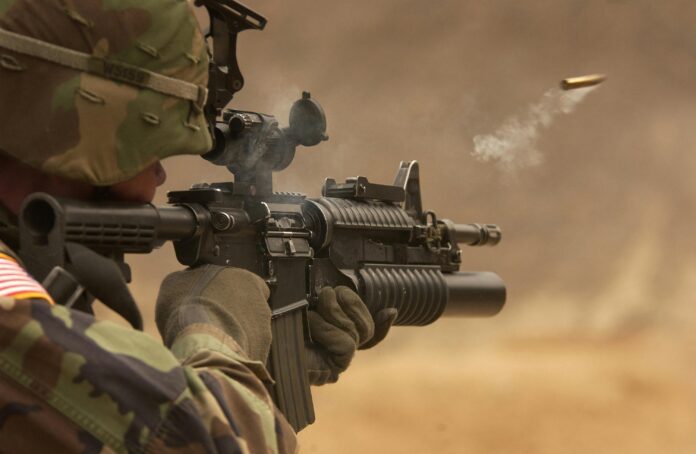Haiti, a nation long beleaguered by socio-political instability, corruption, and violence, recently witnessed another harrowing tragedy—an attack on a hospital in its capital, Port-au-Prince. This brutal assault resulted in the deaths of three people, including two journalists and a police officer, during a hospital reopening, underscoring the dangerous environment faced by journalists and healthcare workers alike. As gunmen opened fire, indiscriminately wounding numerous civilians, the world was reminded of Haiti’s pervasive gang violence that has thrived amid a backdrop of governmental ineptitude and social unrest.
The attack highlights the oppressive conditions under which journalists operate in Haiti. With media personnel increasingly targeted, the freedom of speech and press remains a distant aspiration rather than reality. Haiti’s descent into lawlessness is not new; it’s a culmination of decades of poverty, political turmoil, and foreign intervention. The assassination of President Jovenel Moïse in 2021 only intensified the violence, leaving a power vacuum yet to be effectively filled and exacerbating gang control over urban areas.
Public health facilities in Haiti are already under significant strain, and this incident starkly reveals vulnerabilities in the healthcare system, further eroded by violence. The international community stands as concerned observers, often issuing statements of condemnation yet offering little concrete aid.
Haiti’s ongoing crisis poses challenges not only for the country but for the region. Migration pressures continue as Haitians flee violence and poverty. This exodus strains neighbouring countries and raises questions about the role of international agencies tasked with upholding human rights.
Despite repeated calls for strengthening governance and implementing effective security reforms, progress remains sluggish. Local initiatives to reclaim urban spaces from gangs have been met with fierce opposition, and international efforts have frequently been hampered by the complexities of Haiti’s political climate.
The hospital attack, hence, symbolizes more than an isolated instance of brutality; it is emblematic of a broader failure to secure peace and stability in Haiti and a call to action for both national leaders and the international community.
Embed from Getty ImagesPerspectives
Perspective 1: The safety of journalists in Haiti is rapidly deteriorating, as exemplified by the recent hospital attack. Media personnel, often at the forefront of documenting Haiti’s incessant violence, have become targets themselves. According to a report by Human Rights Watch, press freedom in Haiti is under severe threat, with reports of intimidation, harassment, and violence against journalists on the rise. The Committee to Protect Journalists (CPJ) highlights the alarming trend of targeted attacks, stressing the need for international advocacy to protect journalists and uphold freedom of the press.
Sources:
Human Rights Watch
CPJ
Perspective 2: The hospital attack is a stark reminder of the deteriorating public health infrastructure in Haiti. Médecins Sans Frontières (Doctors Without Borders) has repeatedly called attention to the critical condition of healthcare facilities, exacerbated by violence. The World Health Organization (WHO) also highlights the compounded effects of gang violence and political instability on Haiti’s health systems, calling for urgent international collaboration to address the crises preventing basic medical services from reaching those in need.
Sources:
MSF
WHO
Perspective 3: The implications of Haiti’s instability reach beyond its borders, affecting migration patterns and imposing pressures on neighbouring countries. The United Nations High Commissioner for Refugees (UN HCR) reports an increase in Haitian migrants seeking asylum in other nations, prompting discussions on regional humanitarian solutions. The International Organization for Migration (IOM) underscores the challenges faced by host countries in the Caribbean and Central America, which struggle to provide adequate support amid rising inflows.
Sources:
UNHCR
IOM
